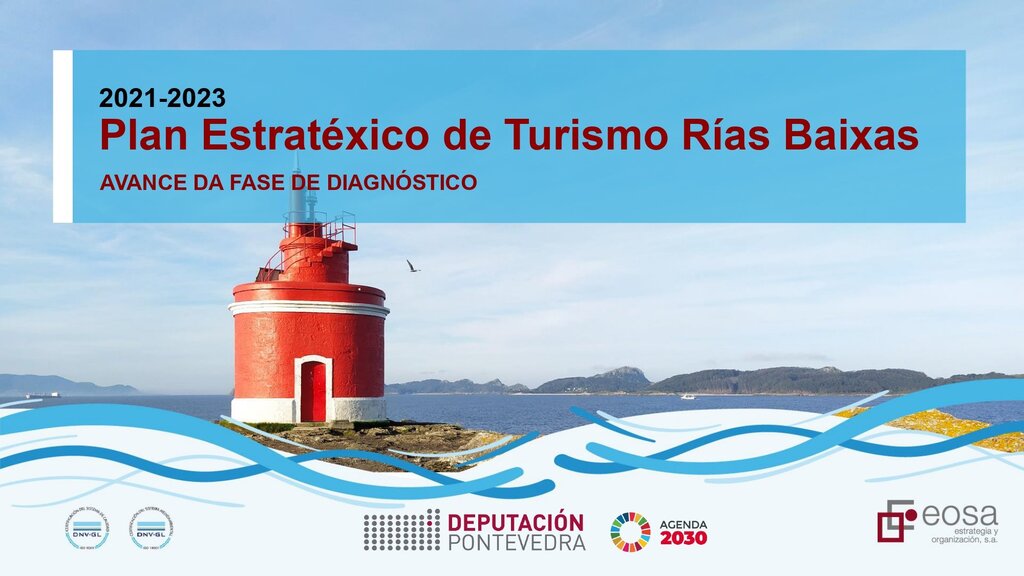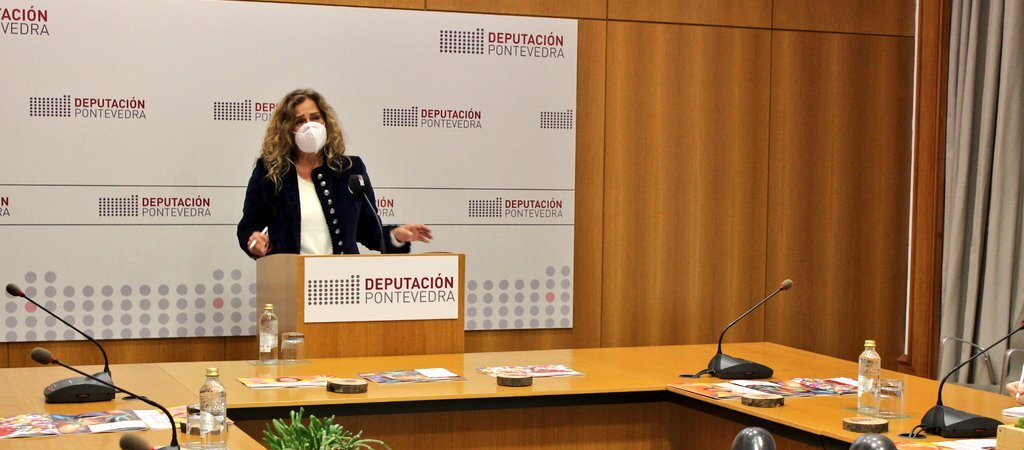The Strategic Tourism Plan 2021-2023 will turn the province of Pontevedra into the first certified smart territory

“We want to turn the province into the first certified smart territory”, the President of the Deputación de Pontevedra, Carmela Silva, announced at the presentation of the main work areas of the Strategic Tourism Plan 2021-2023. This will focus on increasing digitalisation and boosting a sustainable growth model in line with the 2030 Agenda. Carmela Silva explained that next year the budgetary allocation for this plan will be 4.5 million euros, which “will receive European funding too.”
“Tourism is a key sector to us”, she highlighted, “and public administration must have everything ready to have an even more advanced tourism, in comparison with that of the last five years, once the vaccines are ready and there is enough people immune to the virus to open the doors to many visitors.”
The President also stated that the new Strategic Tourism Plan 2021-2023 aims at taking “major steps, strengthening last year strategic lines and moving towards tourism digital transformation in an inclusive and sustainable way, facing three challenges: offering incredible experiences to the hyperconnected 21st-century travellers during the whole trip, promoting competitive and innovative tourism offers and ensuring that the destination can be identified by developing a tourism value chain model.”

This Strategic Plan 2021-2023 intends to achieve seven general goals, focused on a methodology adapted to the new needs of the sector, on reinforcing the institutional capacity at all administrative levels, on narrowing the digital divide and alleviating the territorial inequality regarding connectivity, on strengthening public-private collaborative models based on innovation and on the importance of big data, on the interoperability of technological solutions in the territory, on the budgetary convergence within the European multiannual financial framework for 2021-2027 and the Recovery Plan, and on maximising the value of Rías Baixas destination.
After a supply and demand analysis, the plan will be adapted to the 2030 Agenda and the 2020-2023 Sustainability Plan of Rías Baixas Destination. The next step will be organising collaborative workshops, which will take place in January in different places across the province. These workshops will address digitalisation and sustainability situations, as well as issues related to mobility, tourist services, digital market, 2030 Agenda, rural entrepreneurship and technology forecasting.
Tourism agents, institutional representatives and groups related to tourism will take part in these workshops. According to the President, they will also include interviews to 20 experts in the different goals of the plan and the strategic resources in our province.









